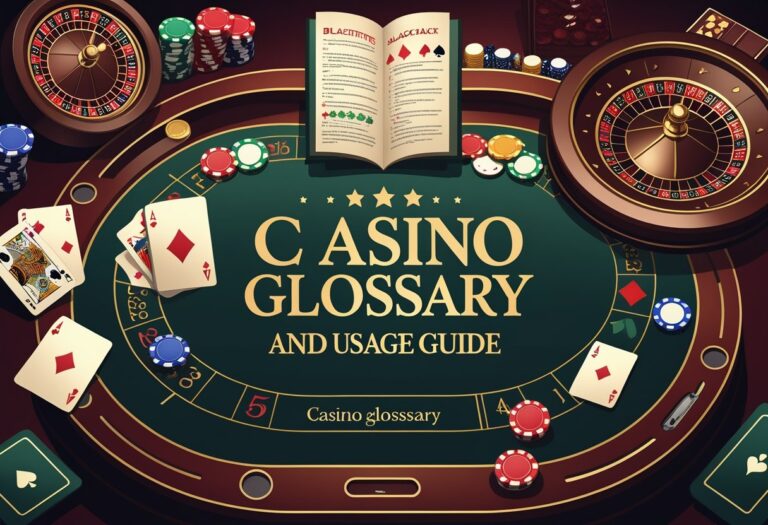🧠 호스트 전략의 신경과학적 기반
카지노 호스트의 접근은 단순한 친절이 아니라, 사용자의 도파민 회로를 자극하고 인지 통제력을 약화시키는 생리학적 설계에 기반합니다.
- 🎯 도파민 기대감 유도: “VIP 전용 혜택” 언급 → 기대에 따른 도파민 분비 증가
- 🧠 옥시토신 자극: 인간적 친밀 대화를 통해 신뢰 유도 → 경계심 저하
- ⚠️ 인지 피로 유발: 장시간 도박 유도 → 피로한 상태에서 판단력 저하
이는 뇌가 논리보다 감정에 기반해 의사결정을 내리도록 유도하는 구조로, 플레이어는 스스로 통제하고 있다고 착각하며 행동하게 됩니다.
📊 VIP 시스템의 설계와 조작 방식
계층적 VIP 시스템은 사용자의 **자기 가치감과 행동 강화를 동시에 유도**합니다:
- 💎 명예 욕구 자극: “플래티넘 회원 전용 혜택” → 사회적 지위 연상
- 📈 성취 구조 설계: “다음 등급까지 10,000 포인트 남았습니다”
- 🕒 티어 유지 조건 제시: 일정 기간 내 일정 금액 도박 → 반복 참여 유도
이러한 구조는 플레이어로 하여금 **행동을 스스로 강화하게 만들며**, 호스트는 이를 통해 사용자의 예측 가능한 행동 패턴을 확보합니다.
🎯 호스트가 사용하는 언어적 조작 전략
언어는 호스트의 핵심 무기입니다. 다음과 같은 표현은 조작의 주요 신호입니다:
- 🗣️ “오늘 기분 좋으시죠? 지금 타이밍이 좋아 보여요.” → 긍정적 감정 상태와 베팅 연결
- 🗣️ “이 방에선 큰 손님만 앉아요.” → 명예 자극 + 지위 유도
- 🗣️ “지난번보다 훨씬 운이 좋으실 거예요.” → 확률 왜곡 유도
- 🗣️ “조금만 더 하시면 더 좋은 혜택 드릴 수 있어요.” → 매몰비용 유발 + 상호성 압박
이러한 언어는 호스트가 감정, 지위욕, 손실 회피심리를 동시에 자극하는 방식으로 구성되어 있습니다.
🔄 심리 설계 루프: ‘호스트-보상-반응’의 순환 구조
호스트 전략은 단발적이 아니라 반복되는 보상 루프로 구성되어 있습니다:
- 1️⃣ 심리 상태 분석: 표정, 말투, 베팅 반응 관찰
- 2️⃣ 맞춤형 보상 제시: 현재 감정에 적합한 보상 제공
- 3️⃣ 행동 강화: 베팅 지속, 금액 증가 유도
- 4️⃣ 새로운 기대감 형성: 다음 보상 유도
이 순환은 호스트가 **감정과 행동을 조율하는 ‘심리 관리자’로 기능하도록 설계된 체계**입니다.
📉 도박 참여 증가에 따른 통계적 행동 변화
호스트 전략이 적용된 플레이어는 다음과 같은 행동 변화를 보입니다:
- 💰 평균 베팅 금액: 비호스트 대상 대비 1.7배 증가
- ⏱ 평균 카지노 체류 시간: 3시간 → 6시간 이상
- 💳 재방문율: 일반 사용자 대비 2배 이상
- 🎁 콤프 수령 직후 베팅량 증가: 35% 이상
이는 호스트 개입이 **실제 소비 습관과 행동 패턴을 조정하는 실질적 영향**을 미치고 있음을 보여줍니다.
🧠 자기 보호를 위한 방어 전략 요약
| 전략 | 실행 방법 |
|---|---|
| ⏱ 시간 인식 훈련 | 개인 시계 지참, 휴대폰 알람 설정 |
| 📉 감정 거리두기 | 호스트와의 대화에서 “지금 내 감정은?” 자각 |
| 🧾 베팅 기록화 | 입장 전 예산, 시간 설정 → 시각적 기록 유지 |
| 🚫 콤프 경계 | 모든 혜택은 ‘투자 유도’라는 인식 유지 |
| 🧠 인지 편향 자가 체크 | ‘지금쯤이면 나올 때다’는 생각이 들면 멈춤 |
이 전략들은 감정적 유도에 대한 방어력을 높이고, 도박 환경에서의 자율적 판단 능력을 회복하는 데 핵심적인 도구가 됩니다.
📲 디지털 카지노 호스트의 진화: 온라인에서의 심리 조작
전통적인 라스베이거스 카지노 호스트 전략은 현재 온라인 카지노에서도 그대로 복제·강화되고 있습니다. 특히 디지털 플랫폼은 다음과 같은 방식으로 플레이어와 상호작용합니다:
- 💬 라이브 채팅 호스트: AI 또는 인간 운영자가 친밀한 언어로 실시간 대화 유도
- 📧 맞춤형 이메일: “고객님 전용 보너스입니다”라는 언어 사용
- 📱 푸시 알림 심리 조작: “마지막 기회!”, “회원님을 위한 특별 초대” 등 긴박감 유도
이러한 디지털 전략은 물리적 환경 통제가 없는 온라인 공간에서도 동일한 심리적 영향력을 유지하거나 더 강하게 발휘합니다.
🧩 호스트가 유도하는 선택적 기억 구조
카지노 호스트는 플레이어가 기억해야 할 감정을 선택적으로 유도합니다:
- 🎉 승리 경험만을 상기시키는 언어: “지난번 이겼던 테이블이 기억나시죠?”
- 🎁 보상 경험 강조: “그때 드린 저녁 쿠폰, 정말 좋아하셨죠?”
- 😅 손실은 모호하게 처리: “이번엔 운이 좀 안 좋았어요, 다음이 중요합니다.”
이러한 언어는 감정적 기억 편향을 강화하여 손실보다 보상을 중심으로 한 기억 구조를 만들어냅니다.
📉 플레이어의 자기 통제력 감소 요인 분석
호스트 개입이 장기화될수록 플레이어의 의사결정 자율성과 통제력은 점차 저하됩니다:
- 🧠 결정 피로(Decision Fatigue): 혜택·유도·게임 제안 반복 → 판단 에너지 고갈
- 📉 동기 외주화: “언제 도박할지”를 호스트가 정함 → 주도권 상실
- 🔁 보상-행동 고정화: 보상 받을 때마다 동일한 행동 반복 → 조건화된 베팅 루프 형성
이러한 요인은 플레이어로 하여금 도박 참여를 스스로 조절하는 기능을 상실하게 만들며, 중독 위험을 급격히 증가시킵니다.
🎓 호스트 훈련 프로그램의 구조와 심리학 활용
라스베이거스의 고급 카지노는 호스트에게 다음과 같은 **심리학 기반 교육 모듈**을 제공합니다:
- 🧠 감정 공명 이론: 고객의 감정 상태에 빠르게 동조하고 공감 능력 시뮬레이션
- 🧾 소비 패턴 분석 훈련: 신용한도, 지출 빈도, 반응 시점 분석을 통한 맞춤 대화 설계
- 📚 인지 편향 활용 사례 학습: 손실 회피, 확률 오해, 상호성 압박의 실제 적용 연습
이러한 훈련은 호스트를 ‘친절한 도우미’가 아니라 ‘행동 설계자’로 육성하는 심리 전략 체계입니다.
🛑 도박 호스트 전략에 대한 정책적 규제 필요성
카지노 호스트의 심리 조작 기술은 소비자 보호 측면에서 규제 공백 상태에 놓여 있습니다. 다음과 같은 정책이 논의되어야 합니다:
- 📜 호스트 개입 로그 기록 의무화: 플레이어와의 접촉 이력 기록 및 감사 체계 구축
- 🚫 보상 제공 기준 공개: 어떤 조건에서 어떤 혜택이 지급되는지 투명화
- 🔍 심리 조작 기법 사용 금지 조항: 특정 표현, 행동 설계 방식의 제한
- 📢 고위험군 대상 특별 보호 정책: 과거 손실금, 빈도 기반으로 대상자 설정 및 보상 제한
이는 도박 중독 예방을 위한 행동 기반 규제의 출발점이 될 수 있습니다.
✅ 자기방어를 위한 즉각 실행 가능한 행동 지침
| 상황 | 추천 행동 |
|---|---|
| 호스트가 개인적 이야기를 자주 한다 | 대화 거리두기, 실질 정보 제공 요구 |
| 보상을 전제로 더 많은 플레이를 유도한다 | 즉시 중단, 보상 여부와 무관한 의사결정 원칙 설정 |
| “지금 아니면 안 된다”는 제안을 한다 | 24시간 숙려 후 판단, 타인과 공유 |
| 칭찬과 위로가 반복된다 | 심리적 거리 두기, 베팅과 감정 분리 인식 |
이러한 지침은 호스트 조작에 감정적으로 반응하지 않고, 이성적 판단을 유지하는 데 효과적입니다.




